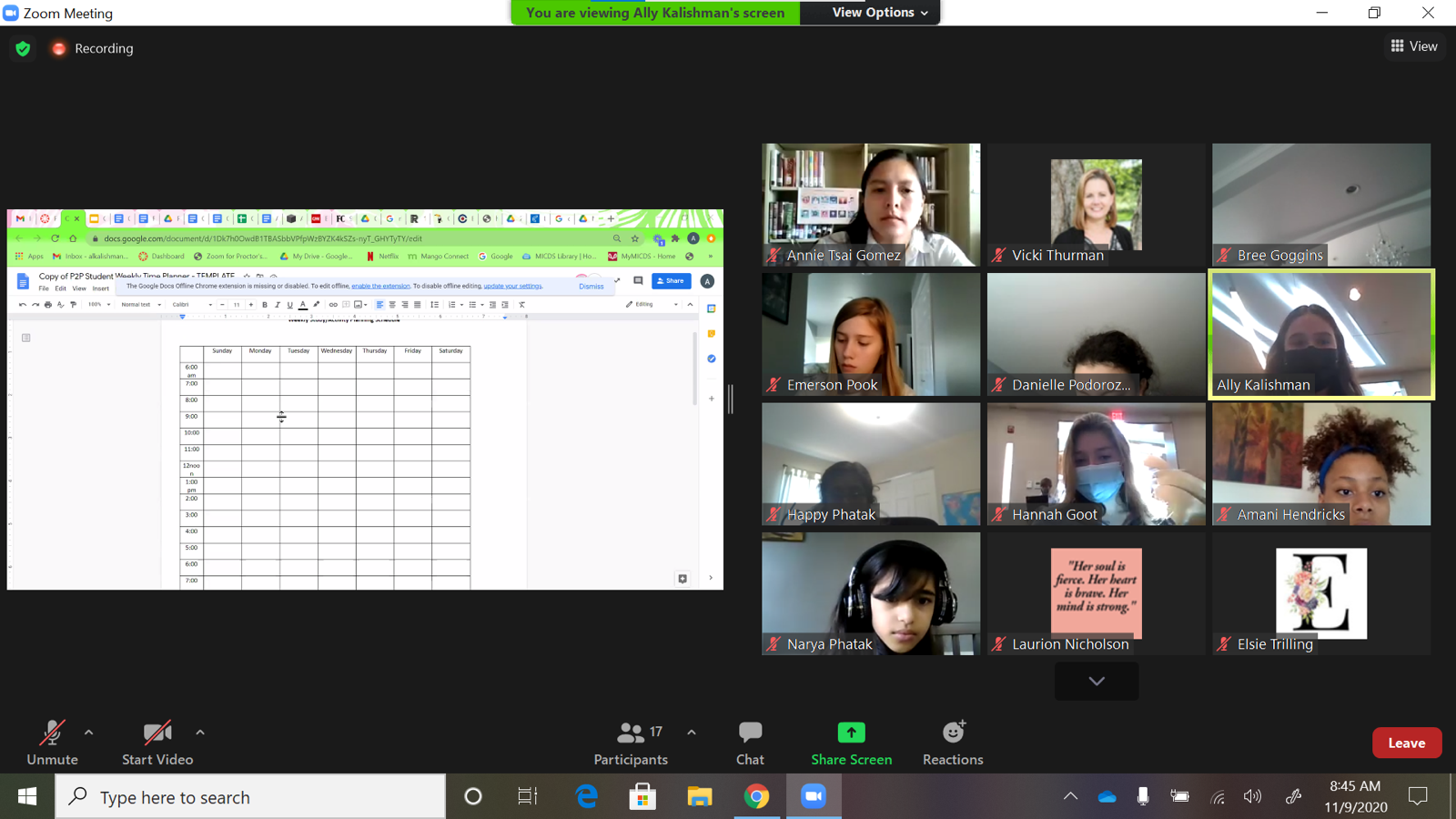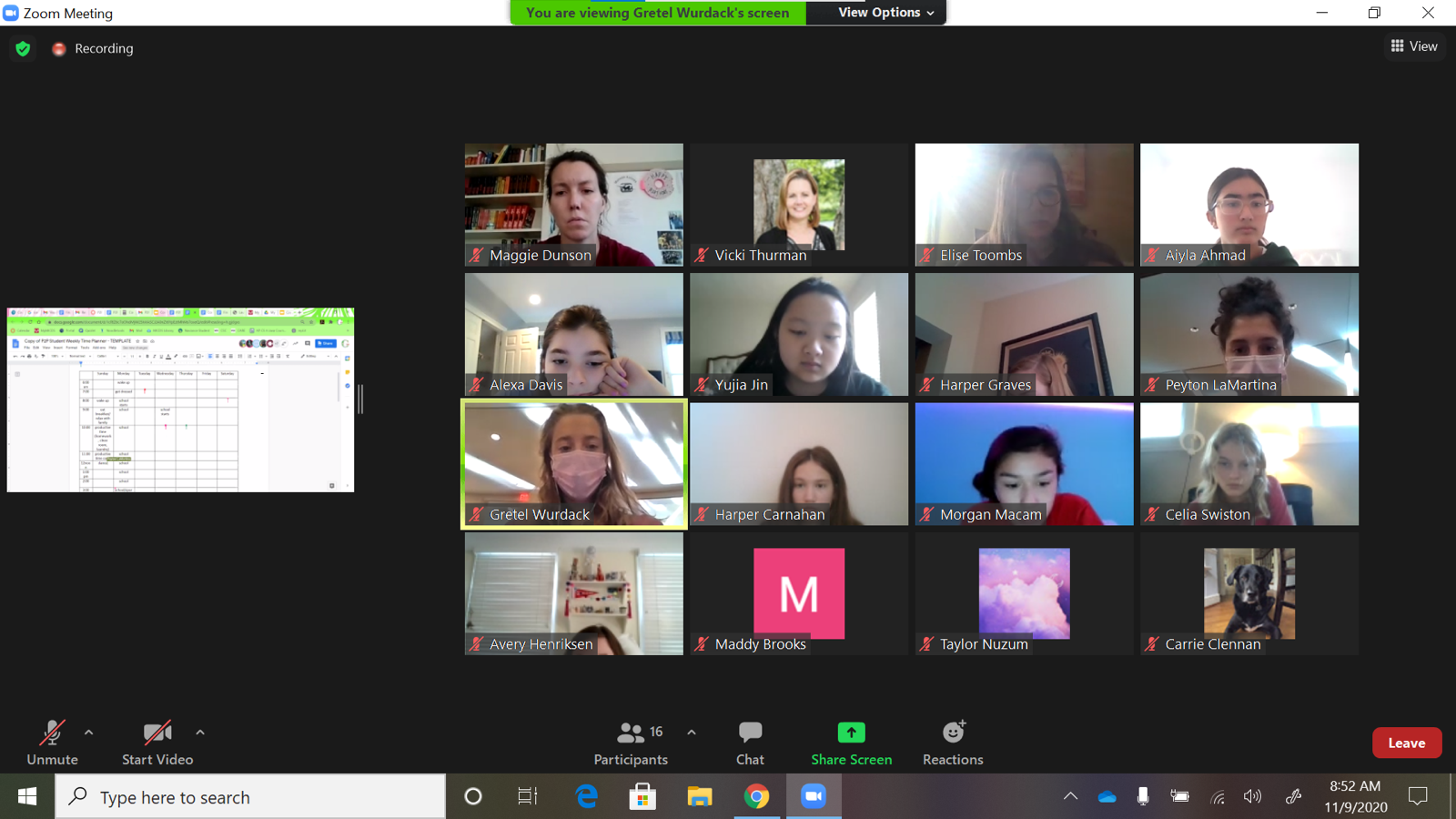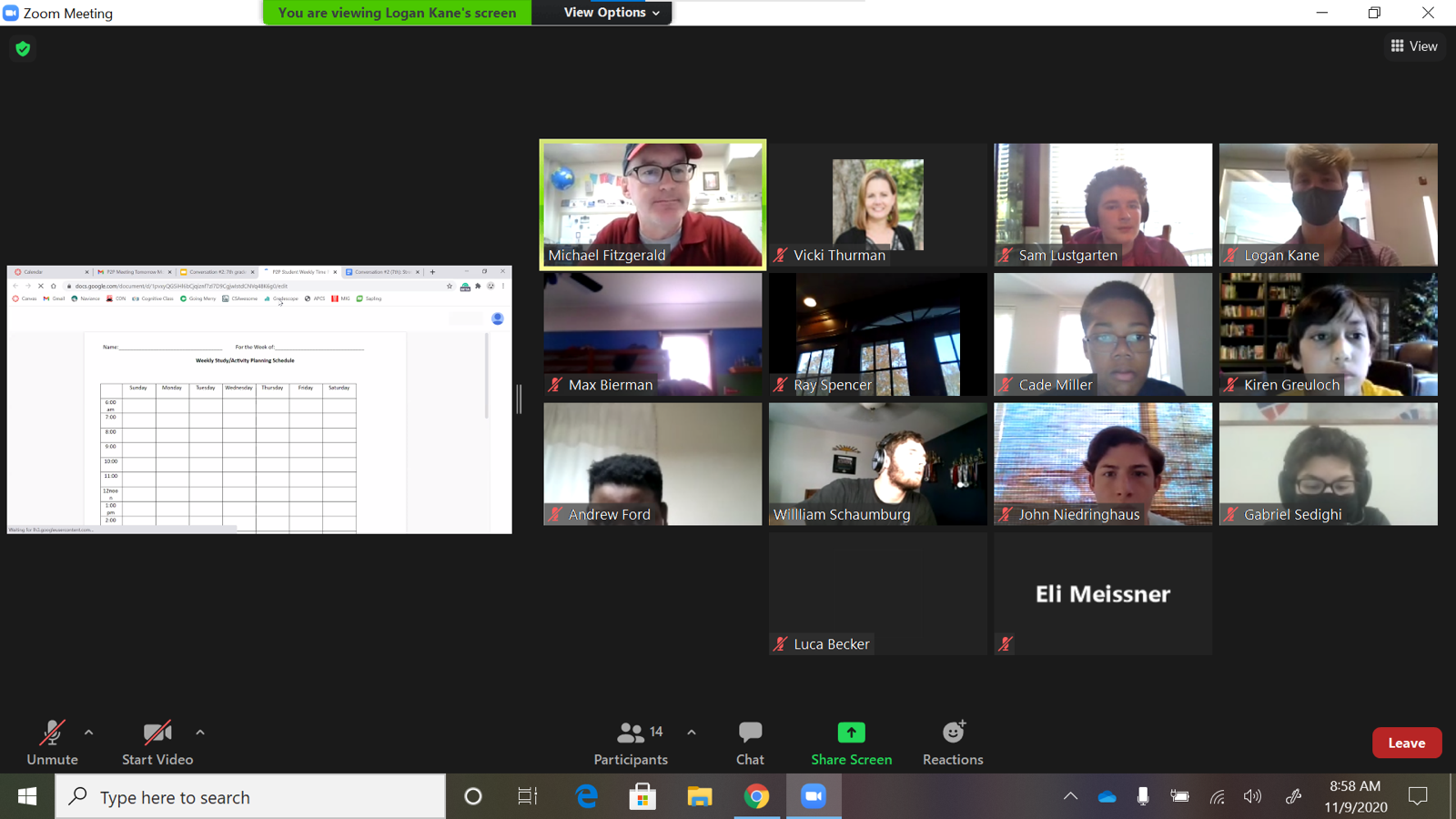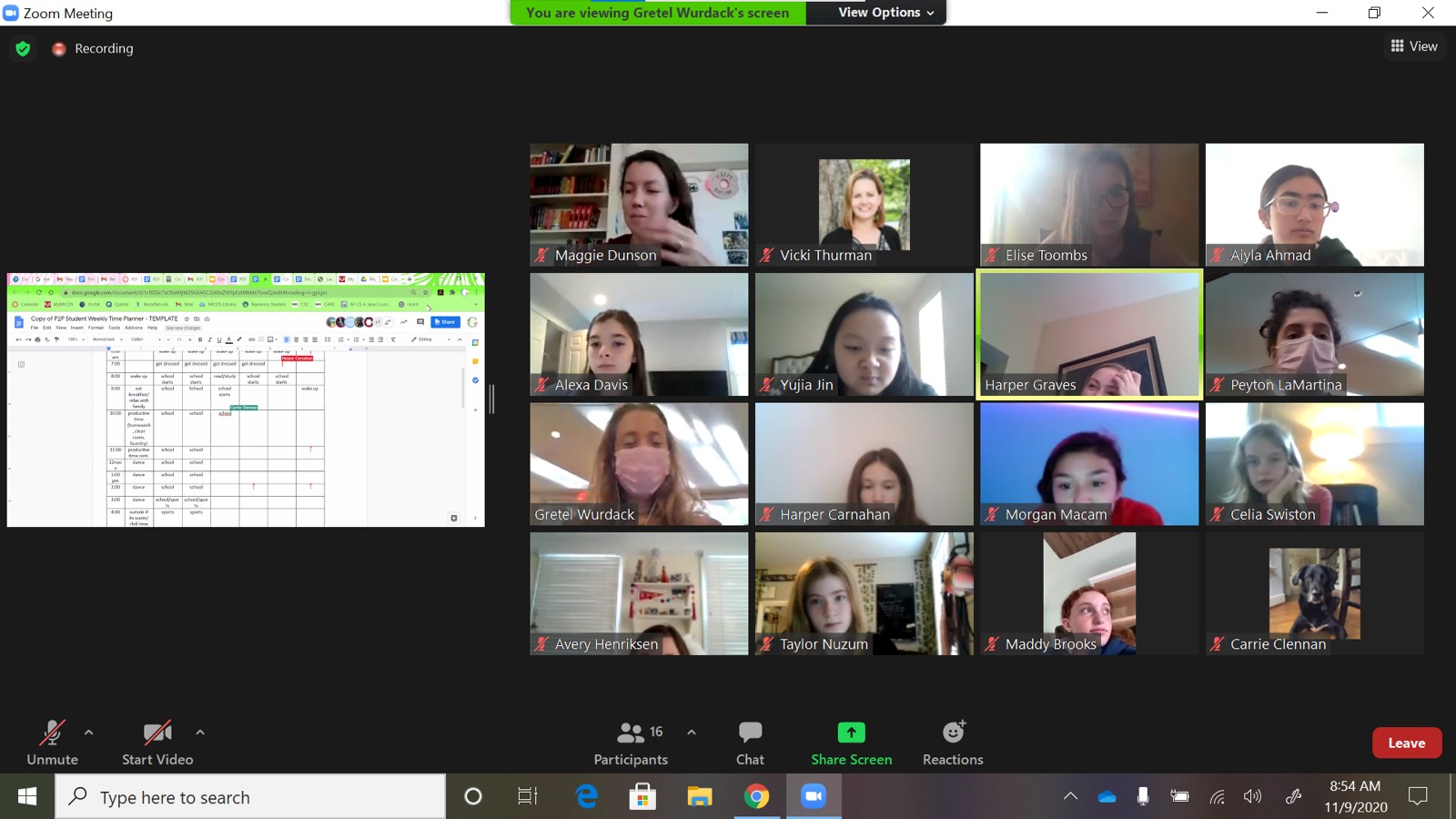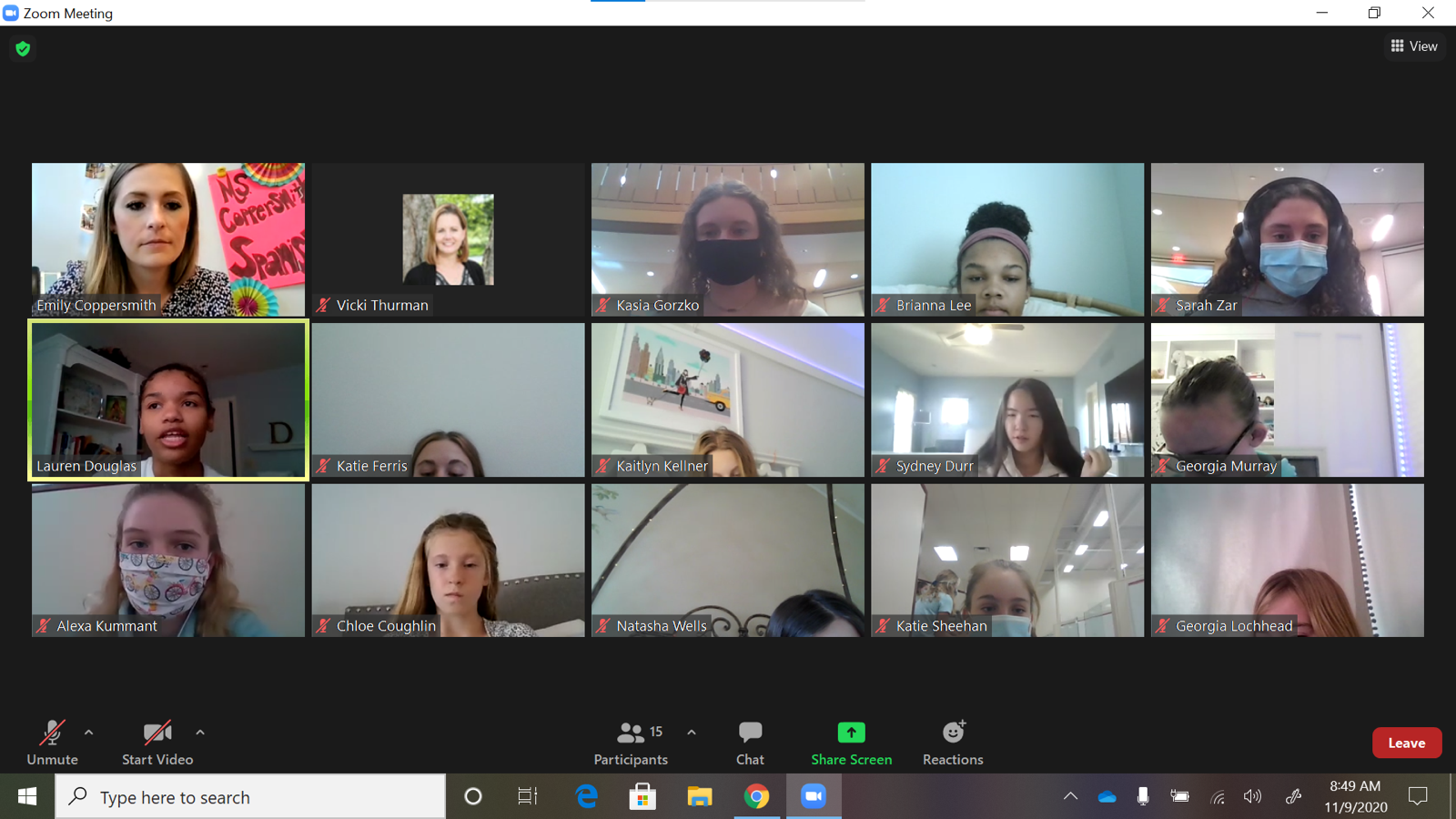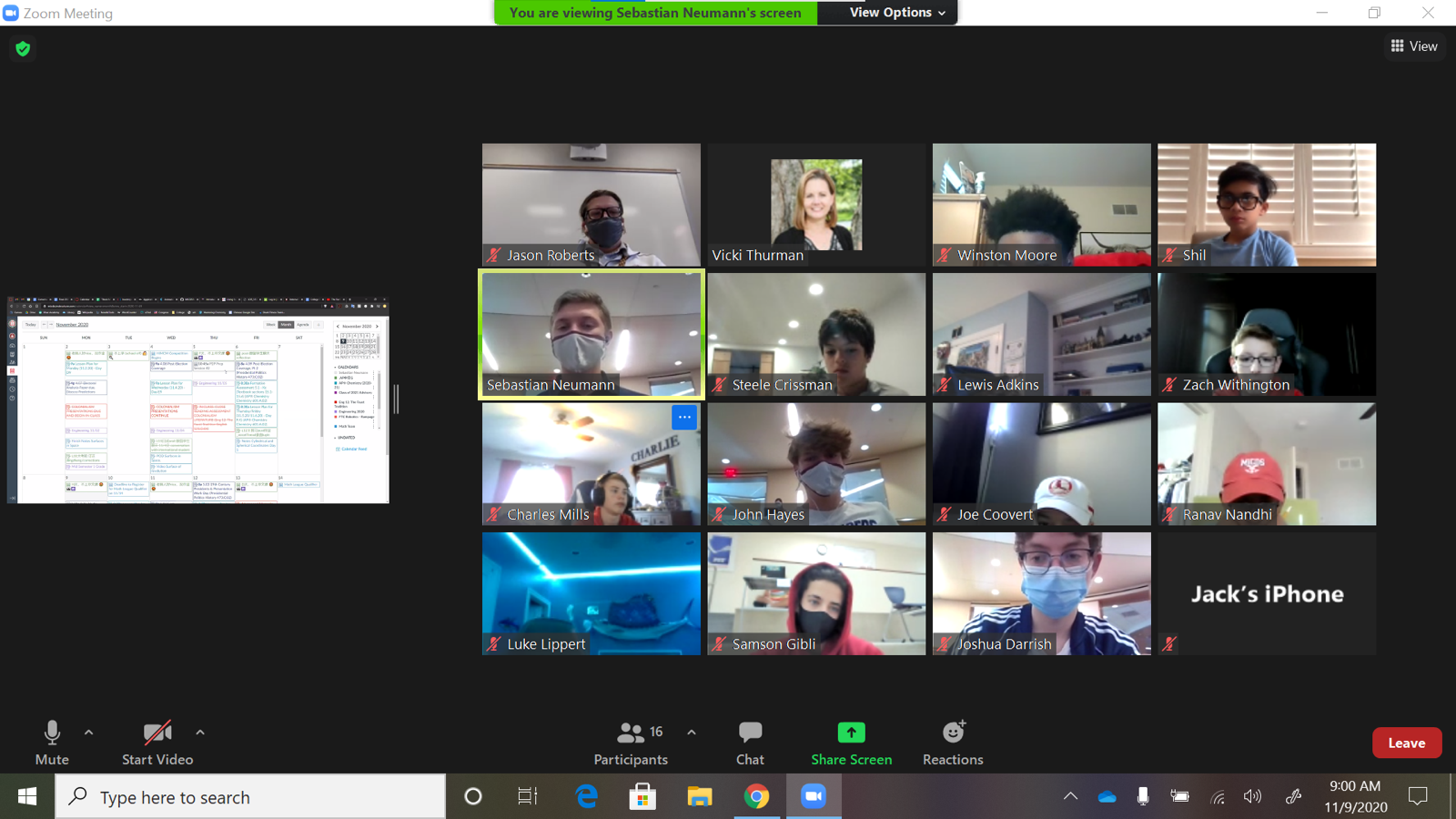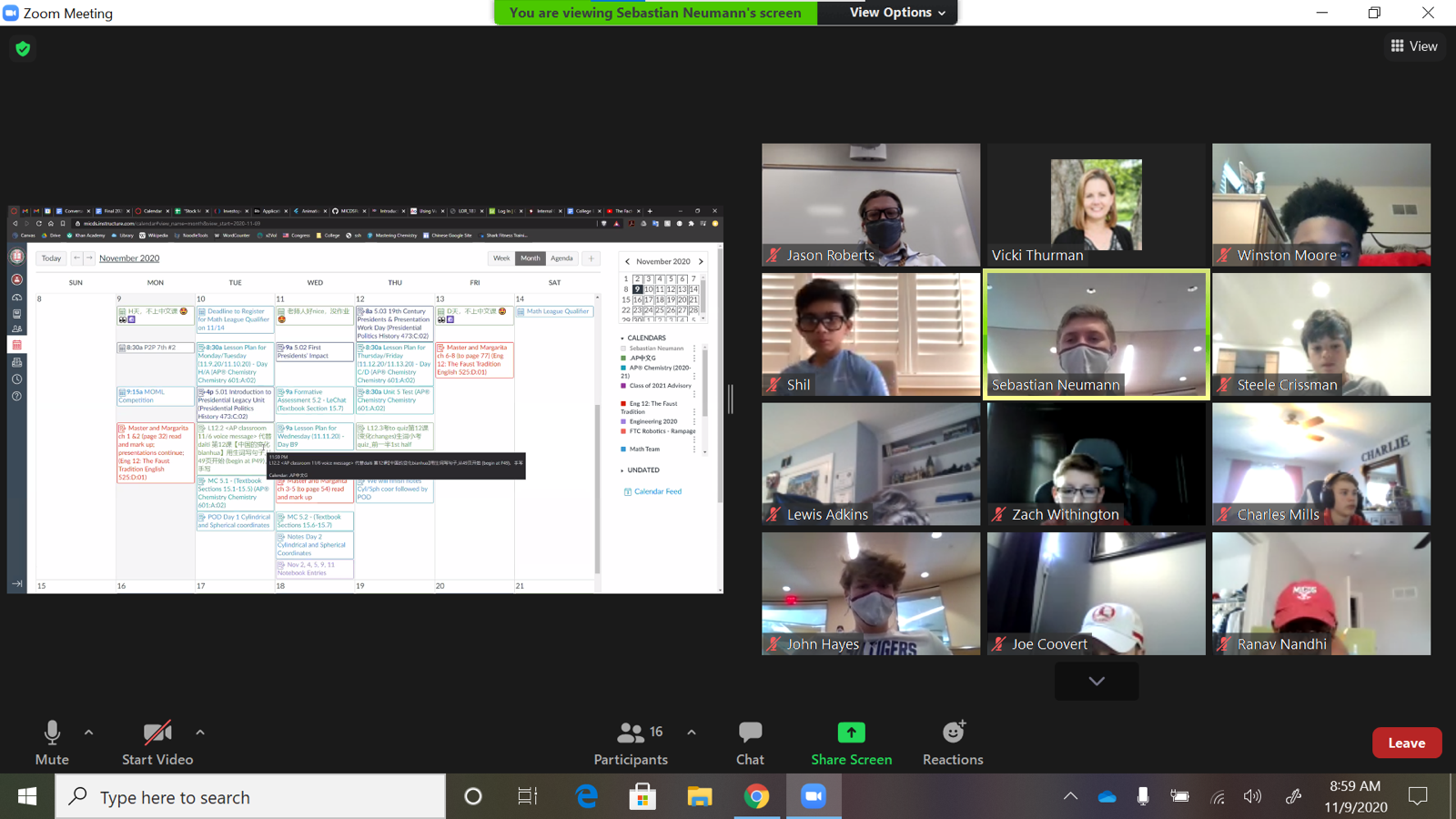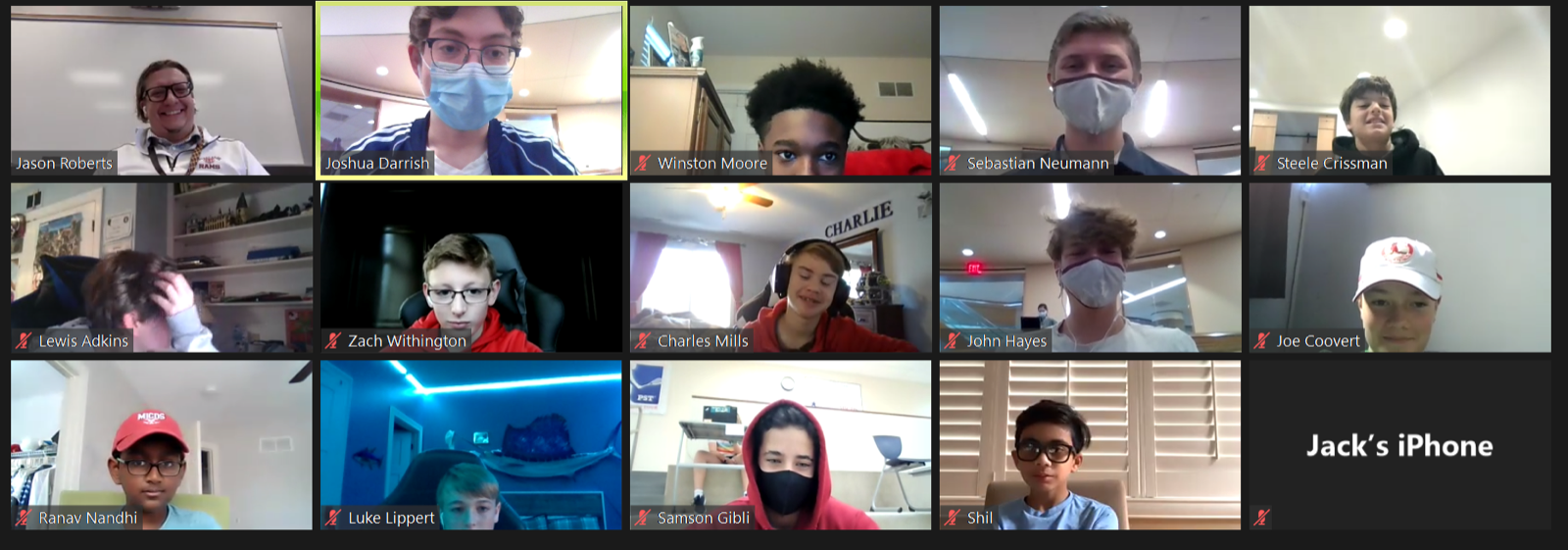Seventh graders enjoyed their second Peer to Peer mentoring session on Monday, November 9. They discussed stress and anxiety with their older schoolmates.
The groups began by identifying what stress and anxiety are, how to normalize that stress, and the fact that anxiety happens to just about everyone. They discussed the positives and negatives of stress and how it is not always a bad thing to experience. Groups dug into the difference between stress and anxiety, and how each of those feelings happens on a continuum. Finally, they reviewed how to manage stress and anxiety, and learned when they should reach out for help. Upper Schoolers shared things that they wish they had not stressed about so much when they were in Middle School.
The first activity called for interaction. Seventh graders were asked to raise their hands if they have ever felt stressed about schoolwork, friendships, family, sports, or other activities. Students were encouraged to share one thing they do to help manage their stress. Then, the activity was repeated with feelings of anxiety. Advisories discussed whether stress or anxiety had ever stopped individuals from participating in an activity or prevented completion of a task.
Students then brainstormed on things that make them feel stressed, and they talked about the signs of stress, including cognitive/academic, behavioral, physical symptoms, and emotional symptoms. Every once in awhile, during the discussion, mentors checked in with their younger friends to see if they were relating. They focused on recognizing and validating physical signs of stress. Not all stress is bad, though. In fact, a healthy amount of stress can be extremely helpful in regards to safety and productivity.
The key is to recognize when stress moves to anxiety, which becomes a problem. What is the difference? Stress is an external cause such as a tight deadline or an argument that subsides when the problem is resolved. Anxiety, on the other hand, is internal. It’s a person-specific response to a situation and can last after the situation is past.
Upper School mentors then led 7th graders through a discussion of how to recognize when their anxiety becomes a problem and how to cope with stress and anxiety, including how to idenfity what is triggering these feelings. They offered some great tips and tricks, such as planning ahead to avoid getting behind, surrounding yourself with positive people, setting your mindset before going into a stressful situation such as a test (this is called a positive reframe), and creating your own goals without basing them on others. They also offered advice on how to manage stress, including the stress of studying and the importance of being prepared.
Mentors then shared some examples from their own experiences, including their personal planners and organized backpacks. They encouraged the younger students to talk to their teachers, building relationships with them and reaching out when help is needed.
Each advisory then launched an activity that clearly showed how stress works in our daily lives. Seventh graders were given a list of daily activities, including school, sports practice, shower, dinner, homework and studying, piano practice, out-of-school meetings with teachers, FLEX time, and sleep, and were told to plan out their week. If the advisory had time, they made a “bad schedule” first, just for fun. Each mentor shared their Middle School experience and helped them craft an organized schedule that didn’t feel overwhelming. They also shared some note-taking and study strategies along with helpful tips on organizing papers and files.
Finally, the mentors spent some time reflecting on their Middle School experience in light of being a few years out. They shared that there were things they wished they hadn’t worried about so much when they were in Middle School, such as an over-emphasis on grades. They also spoke about how to deal with pressure students place on themselves unnecessarily and how to deal with friends who increase anxiety. Personal stories from kids who have “been here” were relatable and helpful for younger students to hear.
Thank you to our amazing Upper School Peer to Peer mentors, and to our 7th graders who participate wholeheartedly in this program.
